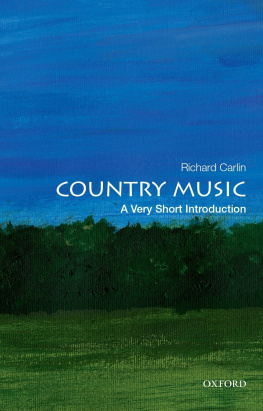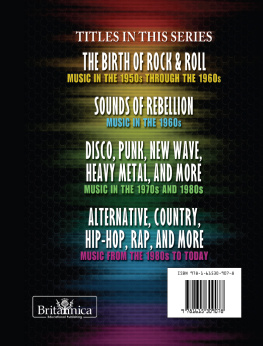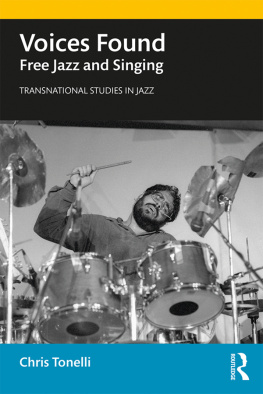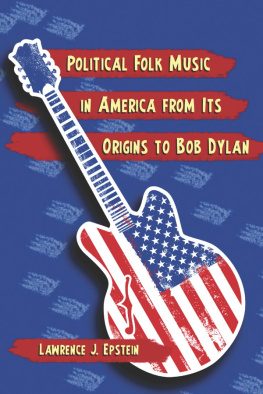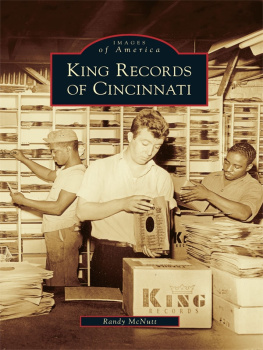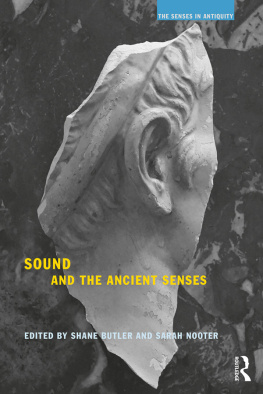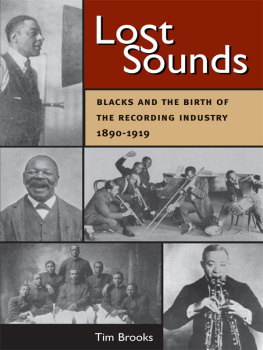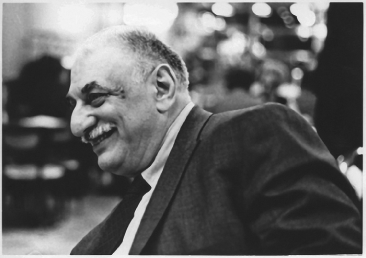This book is dedicated to Moses Asch (19051986), who taught me the importance of dedication, tenacity, and vision for achieving your dreams.
CONTENTS
Chapter 1 CREATING WORLDS OF SOUND:
The Extraordinary Career of Moses Asch
Chapter 3 LASTING FRIENDSHIPS:
Lead Belly, Woody Guthrie, and Pete Seeger
Chapter 4 I SAW AMERICA CHANGED BY MUSIC:
Harry Smiths Anthology of American Folk Music
Chapter 6 STRIKING LIGHTNIN:
Folkways and the Blues Revival
Chapter 7 MY CHILDRENS RECORDS ARE NOT KIDDIE RECORDS:
Discovering the Childrens Market
Chapter 8 FROM THE HILLS AND HOLLERS TO THE SUBWAYS AND SKYSCRAPERS:
The Old-Time and Bluegrass Music Revivals
Chapter 9 IF I HAD A HAMMER:
The Folk Revival
Chapter 10 HISTORY AND SPOKEN WORD:
Capturing Contemporary Expression
Chapter 12 SMITHSONIAN FOLKWAYS:
A Museum of Sound
A passion for recorded sound technology, a commitment to cultural egalitarianism, an enduring legacy of human expression, an unending project to compile an aural encyclopedia portraying the breadth of humanitythe sixty-year history of Folkways Records embodies all of this and more. Just as writers have devoted themselves to the pen, photographers to the camera, and painters to their brushes and palette, Folkways founder Moses Asch etched his lifes work in the phonogramcapturing, curating, and stubbornly distributing a world of sound that he insisted was of vital importance to humankind.
The Folkways Records and Service Corporation came into being in 1948, at the brink of a post-World War II surge in the availability and affordability of the phonograph. A few years previously, recording on tape replaced the more cumbersome wire and disc media, and a few years later, the radical improvements in sound recording technology yielded the high-fidelity long-play recording and further bolstered the mediums burgeoning popularity. Asch had begun his aural masterpiece a decade earlieremboldened by a chance conversation with Albert Einsteinrecording songs of ordinary Americans who in his heart of hearts he knew were anything but ordinary. Two attempts at launching record labelsAsch and Discfailed, but served as the training ground for Folkways, and as Asch hit his stride, he ended up producing close to twenty-two hundred albums over its thirty-six-year span, nearly one album per week!
In 1987, the year following Aschs death, the Folkways Records collection passed to the Smithsonian Institutionwith conditions. First, the Smithsonian must conserve the collection and hire an archivist. Second, Smithsonian insisted that the label should pay its own way if any public outreach was to occur. Third, the Asch family required that the entire Folkways catalog remain available to the public, in keeping with Aschs policy of keeping the entire catalog in print. Fourth, Smithsonian needed to raise funds to purchase the performance rights to the Folkways catalog; it did so, with the help of Bob Dylan, Bruce Springsteen, U2, Emmylou Harris, Willie Nelson, and other notable artists who offered a fundraising concert that led to a film and Grammy-winning recording. With the collection in hand, Smithsonian brought on anthropologist and archivist Anthony Seeger, who became the first director of the newly minted Smithsonian/Folkways label. Smithsonian/Folkways published its first recording in 1988, and it made the historic Folkways Records holdings available, first as cassettes and later as custom CD-R copies. Two decades later, Smithsonian Folkways (the slash was dropped) had launched over 400 albumseither new recordings or compilations drawn from the Folkways Collectionsand, through adding the capacity to offer digital downloads in 2005, the entire collection of close to forty thousand tracks was made available via the Web, expanding the reach of Aschs vision exponentially.
For me, as an ethnomusicologist, sound has no intrinsic meaning whatsoever. People vest sound with meaning, whether they be the creators, the performers, or the consumers/participants. The meaning and effect evoked by a song, for example, might change according to the person listening to it, the moment in which it is sung, and the social circumstances in which it is performed. Likewise, the fullest meaning of the Folkways sound collection is found in its relationship to the people who create the music and sounds, to the people who listen to them, and to the social/cultural circumstance that surrounds them over time.
In Worlds of Sound, Richard Carlin weaves multiple threads into the story of Folkways: Moses Aschs personal experiences and motivations; the New York City intellectual community in which he operated; collaborations with contributors; relationships to the artists he recorded; and the evolution of sound recording technology and business practices. Then Carlin takes us twenty years further, tracing the intrigues and accommodations of the Revolution for Two Institutions, the recasting of Folkways Records as Smithsonian Folkways, a living Museum of Sound. Carlin tells his tale with the authority of a Folkways artist and compiler, music scholar, and editor of many dozens of music publications. Each chapter is replete with audio references, all availableas Asch requiredfrom Smithsonian Folkways. The Smithsonian Institutions mission is the increase and diffusion of knowledge, and in Worlds of Sound, Richard Carlin has contributed enormously to this mandate, crafting an elegant, meaning-laden frame around the remarkable accomplishments of an extraordinary man and his Folkways fellow travelers.
Daniel Sheehy, Ph.D.
Director & Curator
Smithsonian Folkways
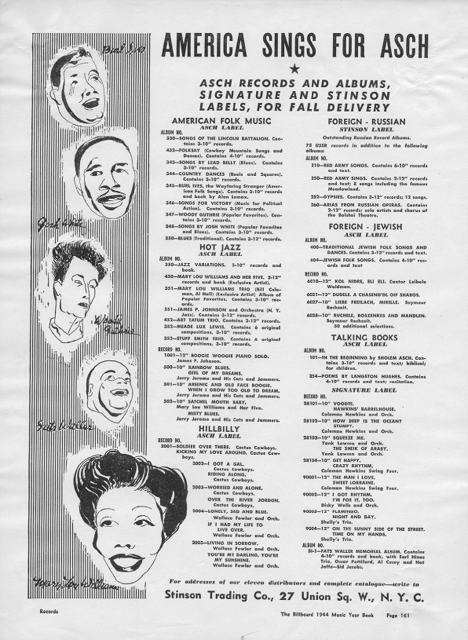
THE FOLKWAYS MOMENT
T his book is about a record labeloriginally known as Folkways Records and Service Corporation and then, for the last two decades, as Smithsonian Folkways Recordingsand the many people who have helped shape it over its sixty years of existence. It is a book of stories, culled from aging scrapbooks and ledgers, yellowed carbons of correspondence, recorded interviews with Moses AschFolkways founding fatherand his legion of creative collaborators, and many, many new interviews and discussions with those who are preserving and enlarging the Folkways legacy, and the listeners who have been influenced by its varied recordings.
These stories often share a common theme, something that Dan Sheehy and Atesh Sonneborncurrently Director and Associate Director of the Smithsonian Folkways labelhave astutely called a Folkways Moment: the first encounter with a Folkways recording that affects the listener significantly. New sounds are heard; ears are opened; lives are transformed. While they may sound like exaggerations, I was repeatedly amazed by how many stories I heard that began, When I heard that record of folksongs from Trinidad, I suddenly realized there was a world of music beyond what I could hear on the radio or My parents played Pete Seeger records for me when I was a kid, and I just have had that sound in my head as long as I could remember or I heard that record of African Pygmies in college, and I was ready to jump on a tramp steamer and give up my academic career forever. The shock of hearing something totally new offered a glimpse into deeper possibilities, life beyond the American mainstream, worlds where human expression in all its variety could freely interact.


